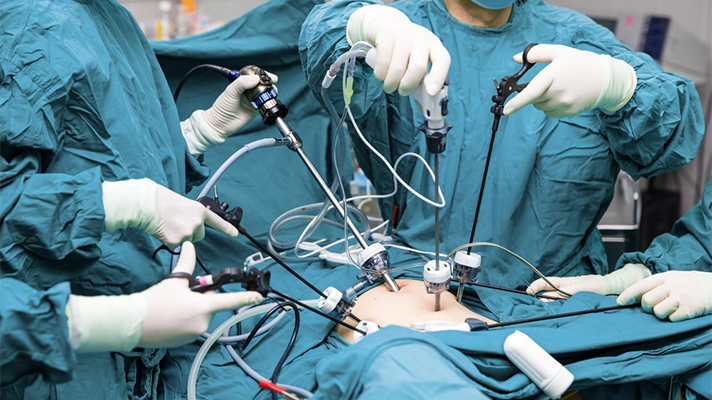
Sometimes excess weight can be so stubborn.
So stubborn to the extent that it remains there even after spending weeks or months dieting and hitting the gym.
But that is something that shouldn’t frustrate you...do you know why?
Because you still have a way of getting rid of it. That way has a name, and it's medically known as Laparoscopic Gastric Sleeve (LSG). This is a complex surgery that only has to be performed by experienced hands.
And if you’re to ask us about those qualified hands suitable to conduct this surgery, we will bravely point you to Dr. Serkan Ayhan. He is one of the few doctors that have mastered the art of performing a Gastric Bypass surgery and any other treatment procedures for obesity, diabetes and reflux.
This article will help shed more light on Laparoscopic Gastric Sleeve surgery: how it is performed, how it helps reduce weight, possible risks associated with it, and if you are a good candidate for it.
How is Lap. Gastric Sleeve performed?
Laparoscopic Gastric Sleeve surgery main aim is to remove 75% of the stomach so that one consumes a small quantity of food. This surgery involves the use of a video camera (laparoscope) that helps surgeons see the inside of your abdomen.
When performing this procedure, your surgeon will begin by giving you general anesthesia so that you feel comfortable during the surgery. Once the anesthesia kicks in, your surgeon will then make 3 to 5 small incisions in the abdomen. It is through those incisions that a laparoscope is inserted in order to view the inside of your stomach.
Once your surgeon has a clear view of what is inside your stomach, a large portion of the stomach is removed and the remaining portions of the stomach are joined together using surgical staples. It’s important to note that no intestines are removed or bypassed during the sleeve gastrectomy.
After the surgery, a long vertical tube or banana-shaped stomach is created. In most cases, it takes between an hour or two to complete the surgery.
How does lap. Gastric Sleeves Cause weight loss?
As indicated in the section above, gastric sleeve surgery greatly reduces the size of your stomach and this therefore limits one’s food intake. By so doing, it does not cause decreased absorption of nutrients or bypass your intestines. All it does is make you feel full very quickly after eating a small amount of food.
In some instances, Laparoscopic Gastric Sleeve may also cause a decrease in appetite. Not only does it help you lose weight by reducing the size of your stomach, but it also reduces the amount of "hunger hormone" produced by the stomach which may contribute to weight loss after this procedure.
How much weight loss occurs after LGS?
Of course, this varies from one patient to the other. The amount of weight you lose after having LGS depends on one’s preoperative weight. But it is estimated that you can expect to lose between 40% to 70% of excess body weight in 12 months. Some patients may be recommended to undergo bariatric surgery in order to see notable weight loss.
What are the risks?
Just like any other complex surgery, LSG also comes with its own set of possible risks. And these include:
- Bleeding
- Infection
- Injury to other organs,
- Leak from the staple line used to divide the stomach.
Although the risks can be rare when the surgery is performed by a certified-surgeon, it’s important to know that it might come with side effects sometimes.
Is LGS a good choice for me?
Not everyone is an ideal candidate for the LGS procedure. You are more likely to be turned down from having this procedure if you are not in good healthy condition. This means that doctors will first have to examine your health status before proceeding with the surgery. Diabetic people, or individuals addicted to surgery foods, alcohol or acidic beverages can be turned down by doctors.
LGS is normally used as part of a staged approach to surgical weight loss. If you have a very high body mass index (BMI), or are at risk of having heart or lungs problems because of being overweight –you’d make a good candidate for this surgery. People with a BMI which is more than 35 can make an ideal candidate.
This content is edited by Flymedi Medical Editors in April 2020
Take The First Step Get Started!
Our team will dedicate their effort and time to help you choose the clinic best for you. Our goal is not just to find ‘a doctor’ for you, but to find ‘the right doctor’.





.jpeg?w=100)

